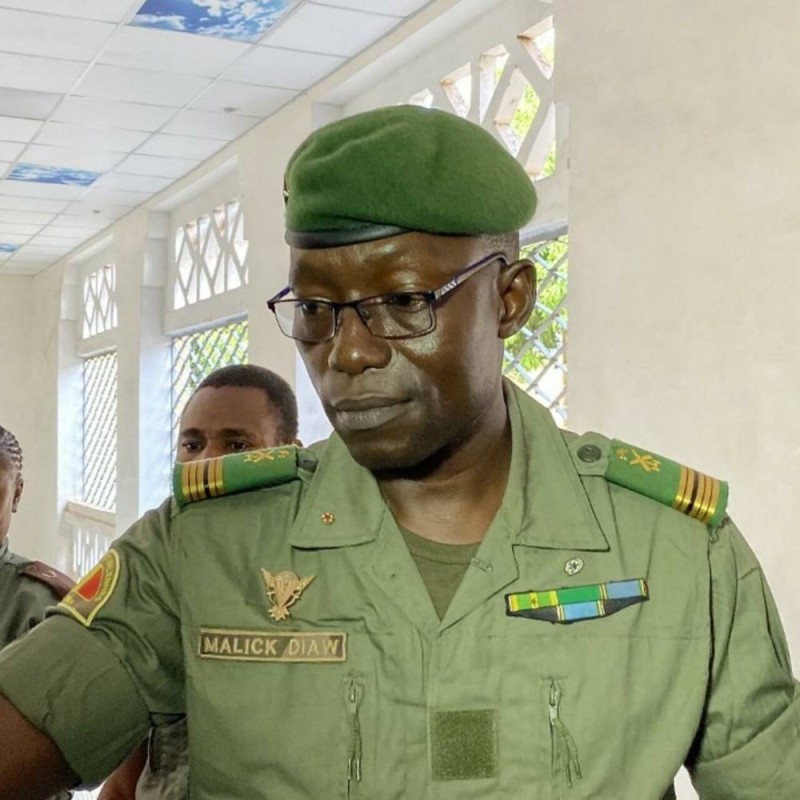
Vice President of the CNSP (National Committee for the Salvation of the People) Colonel Malick Diaw arrives to the Malian Ministry of Defence for a meeting with Malian politicians, in Bamako, on August 20, 2020, two days after a military coup ousted the president. - West African leaders on August 20, said they would dispatch envoys to coup-stricken Mali to help secure "the return of constitutional order" and called for its ousted president to be restored to office. Rebel soldiers on August 18 launched a mutiny in a barracks on the outskirts of Bamako, detained the president and prime minister and declared they had taken power. (Photo by MALIK KONATE / AFP)
Vice President of the CNSP (National Committee for the Salvation of the People) Colonel Malick Diaw arrives to the Malian Ministry of Defence for a meeting with Malian politicians, in Bamako, on August 20, 2020, two days after a military coup ousted the president. - West African leaders on August 20, said they would dispatch envoys to coup-stricken Mali to help secure "the return of constitutional order" and called for its ousted president to be restored to office. Rebel soldiers on August 18 launched a mutiny in a barracks on the outskirts of Bamako, detained the president and prime minister and declared they had taken power. (Photo by MALIK KONATE / AFP)
Mali: après la tentative de coup d'État déjouée, le colonel Malick Diaw sur la sellette?
Si le CNT a officiellement dénoncé la tentative de coup d’État menée dans la nuit du 11 au 12 mai et a appelé à ce que ses auteurs soient tous identifiés et traduits en justice, beaucoup ont remarqué que ce n’était pas Malick Diaw qui avait signé le communiqué. « Le président signe les déclarations et le secrétaire général signe les communiqués » justifie-t-on au CNT. Lire la suite...
